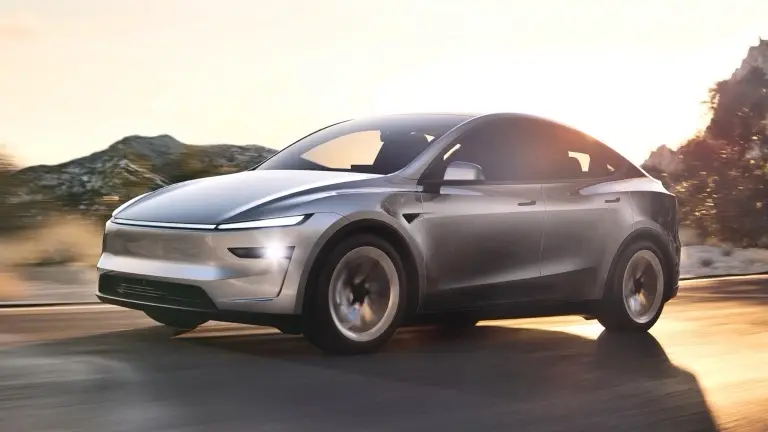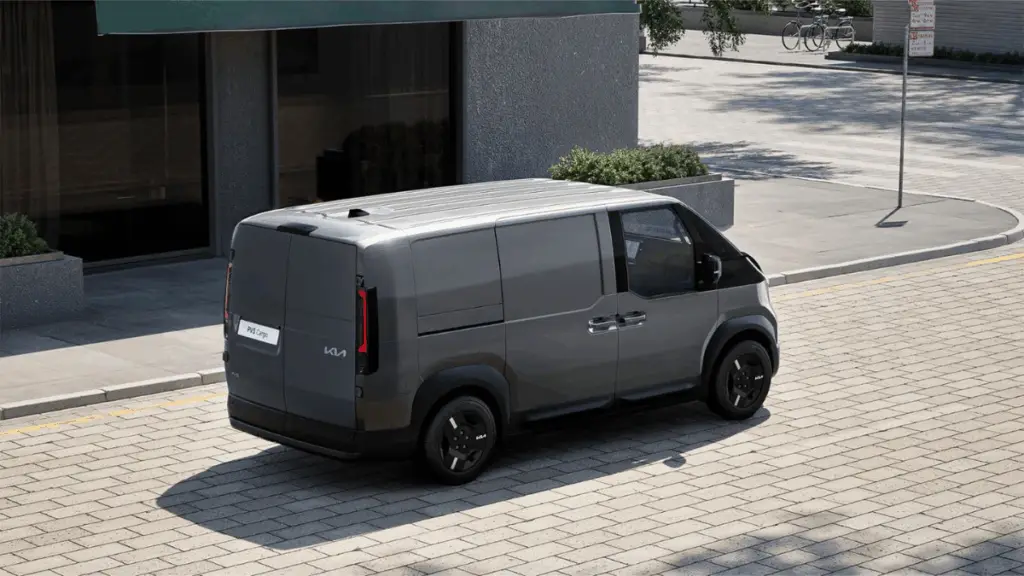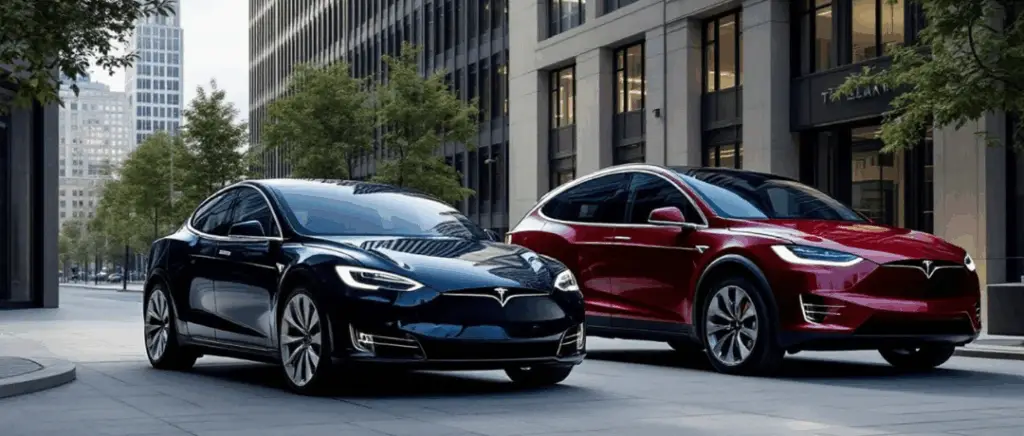Why choose an electric car in 2025?
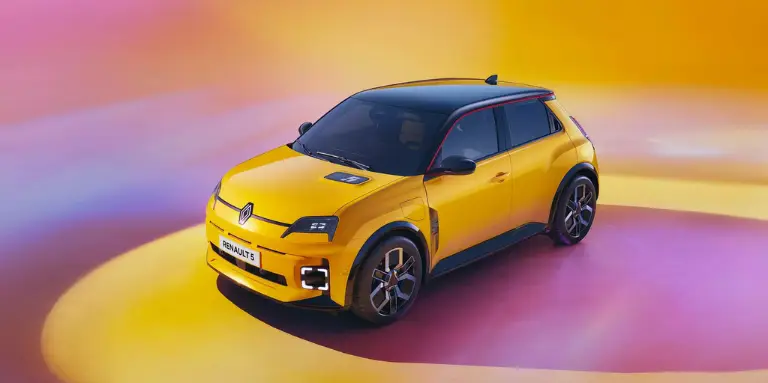
The year 2025 promises to be a decisive turning point for the electric vehicle market. With an expected market share of between 20% and 24% of new car sales in France, the choice of an electric vehicle is becoming more relevant than ever. This spectacular growth can be explained by several key factors:
- The arrival of new, more affordable models, such as the Renault 5 e-tech and the Citroën ë-C3
- Tougher CO2 standards and mass deployment of charging stations
- Major technological innovations, particularly in batteries and ultra-fast recharging
What's more, carmakers are multiplying their offerings, making the market more competitive and diversified. This development is accompanied by lower acquisition and maintenance costs, making electric vehicles an increasingly attractive option for consumers.
Compare the best electric city cars :
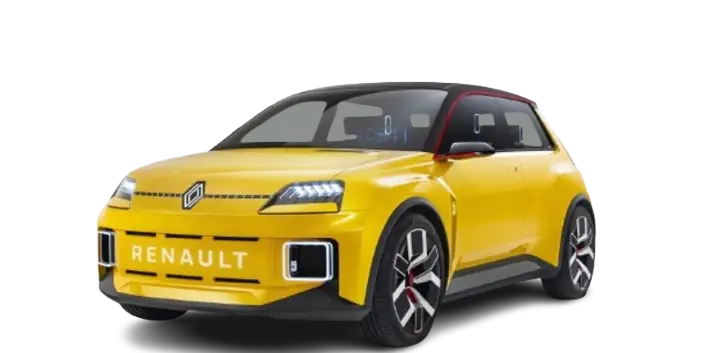
VS
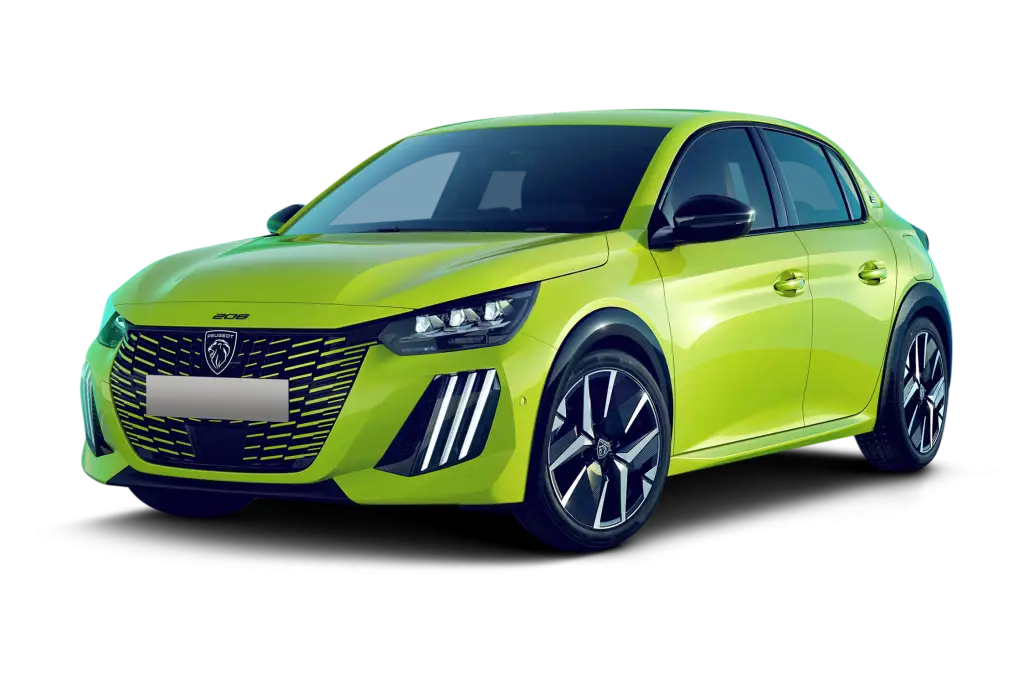
Compare the Renault 5 e-tech vs Peugeot e-208in our electric car comparison tool
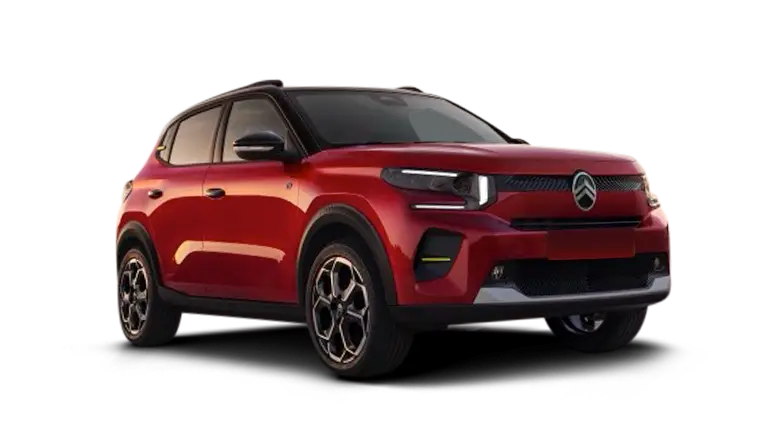
VS
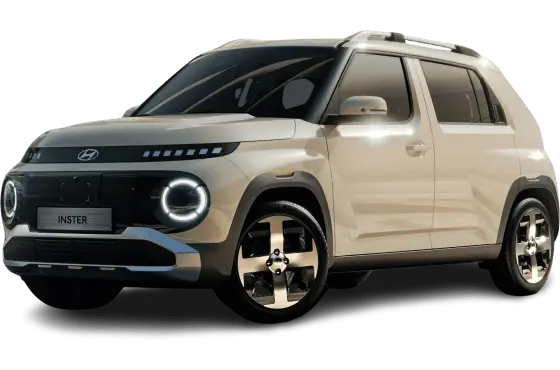
Compare the Citroën ë-C3 vs Hyundai Insterin our electric car comparison tool

VS

Compare the Hyundai Inster vs Fiat Grande Panda 44 kWhin our electric car comparison tool
Market and technological developments
The electric vehicle market is set to undergo a veritable revolution in 2025, marked by significant technological advances and increased democratisation. Sales of electric cars are expected to reach 20 million units worldwide this year, an increase of around 17% compared with 2024. This growth can be explained by several key factors:
- Autonomy Increased range: New models now offer ranges in excess of 500 km, thanks to advances in battery technology.
- Ultra-fast charging: Recharging infrastructures have improved considerably, allowing 80% of range to be recovered in less than 20 minutes for certain models.
- Affordability: The expected arrival of more affordable models, such as the Tesla Model 2 at under €30,000, will make electric cars accessible to a wider public.
- Diversification of the range: Carmakers are offering a wide range of electric vehicles, from the smallest to the largest. electric city cars at Electric SUVs to meet every need.
- Technological innovations: The integration of advanced driver assistance systems and enhanced connectivity make electric vehicles even more attractive.
These developments make 2025 a pivotal year for the electromobility market, with the market share of electric vehicles expected to reach 24% of new car sales in Europe. Traditional manufacturers and new players, particularly from Asia, are vying with each other to offer ever more efficient and attractive vehicles.
Essential criteria for choosing an electric car
Buying an electric vehicle in 2025 requires careful analysis of several key parameters. Range, long considered to be the Achilles heel of electric cars, has improved significantly, with some models now exceeding 700 km in the WLTP cycle. The purchase price, while still higher than that of equivalent combustion-powered vehicles, benefits from substantial government subsidies, which can reach €5,000 for the most affordable models.
Energy consumption and running costs have become important differentiating factors, directly influencing owners' long-term budgets. Finally, the speed and ease of recharging play a crucial role in the day-to-day user experience, with charging times continuing to fall thanks to technological advances.
These criteria, combined with other aspects such as comfort, performance and technological equipment, form the basis of a comprehensive assessment to choose the electric car best suited to your needs in 2025.
Autonomy: a key factor
Range has become a decisive criterion in the choice of an electric car in 2025. Technological advances have made it possible to significantly increase the distances covered on a single charge, thereby reducing range anxiety.
Comparison of autonomy by segment :
- City cars: Models like the Fiat Grande Panda offer a range of up to 320 km according to the WLTP cycle, enough for everyday use in town and weekend getaways.
- Sedans: The Tesla Model 3 Long Range stands out with an impressive range of 678 km according to the WLTP cycle.
- SUV: The Kia EV9 GT-line achieves a range of 608 km, demonstrating that even the largest vehicles can offer remarkable performance.
Compare the best electric saloon cars :
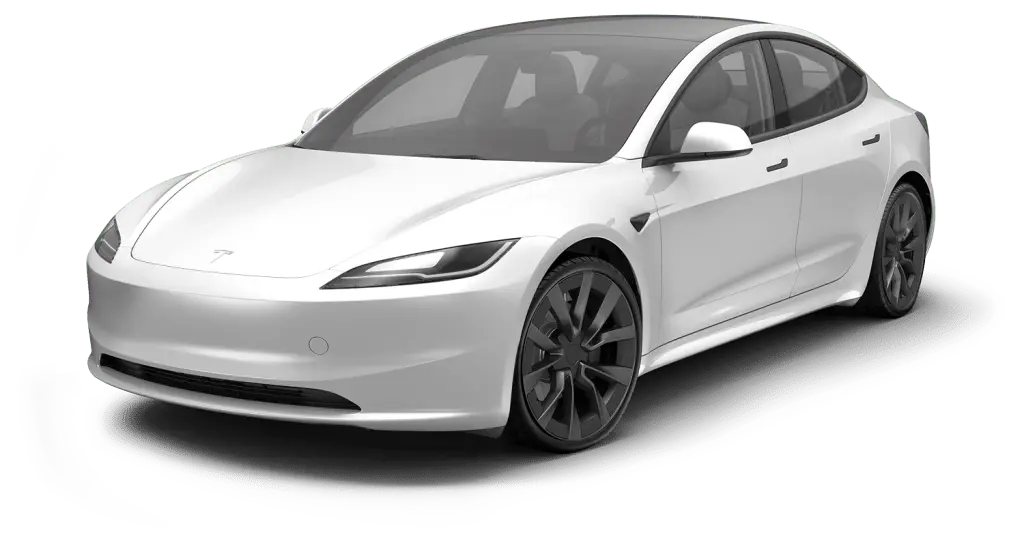
VS
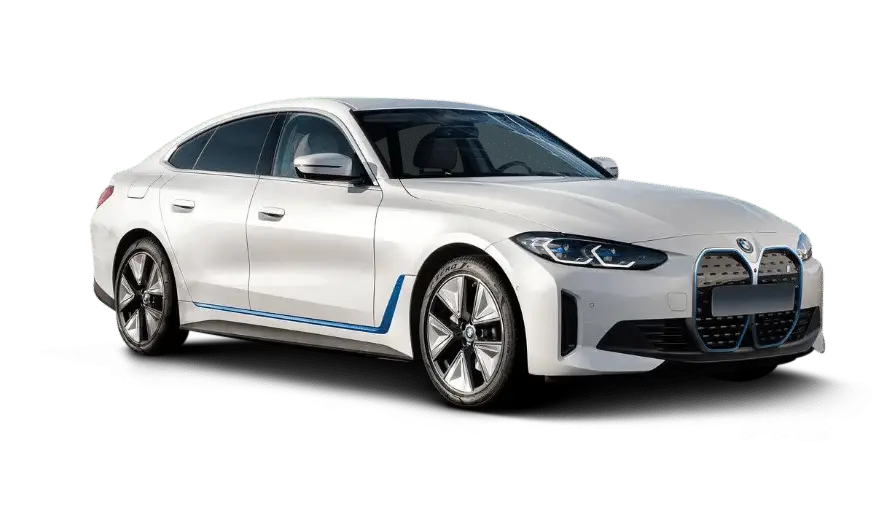
Compare the Tesla Model 3 Long Range vs BMW i4in our electric car comparison tool

VS
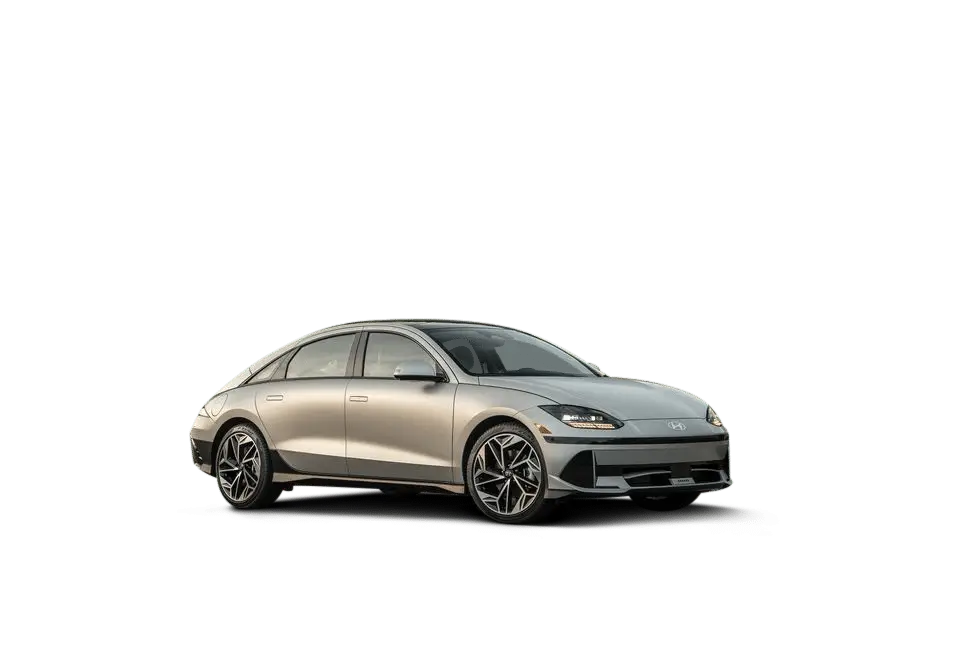
Compare the BMW i4 vs Hyundai Ioniq 6 in our electric car comparison tool
Compare the best electric SUVs :
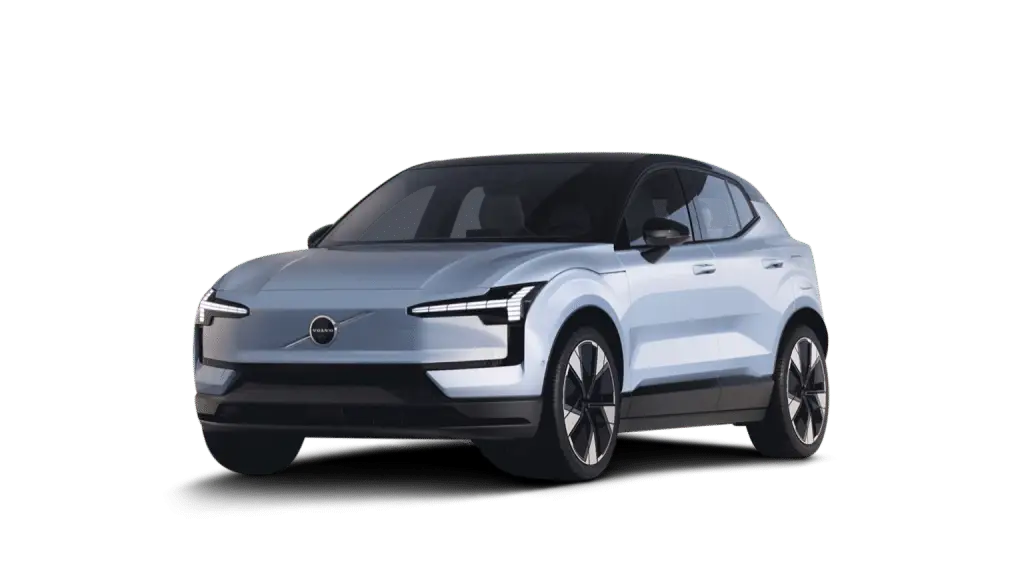
VS

Compare the Volvo EX30 vs Kia EV9in our electric car comparison tool
Factors influencing real autonomy :
The range claimed by manufacturers is based on the WLTP cycle, but a number of factors can affect the actual range:
- Weather conditions: Cold weather reduces battery efficiency, having a negative impact on range.
- Driving style: Flexible driving preserves range, while sporty driving reduces it.
- Vehicle weight: The lighter the vehicle, the greater the range.
- Use of equipment: Using air conditioning or heating can reduce range.
- Type of journey: Urban journeys are generally better for autonomy than long motorway journeys.
It is crucial to note that actual range can vary from 10 to 30% compared with the WLTP figures announced, depending on conditions of use. Consumers should therefore take these factors into account when making their choice, depending on their specific mobility needs.
The purchase price and available grants
The purchase price remains a determining factor in the choice of an electric car in 2025. Manufacturers offer a wide range of models to suit all budgets:
- Entry-level: From €17,000 for city cars like the Dacia Springideal for urban travel.
- Mid-range: Between €30,000 and €45,000 for models such as the Renault Zoé or the Peugeot e-308offering a good compromise between price and performance.
- Top of the range: More than €50,000 for premium vehicles such as the Tesla Model Ywith advanced technologies and greater autonomy.
To make these vehicles more accessible, the government is maintaining significant support for 2025:
- Ecological bonus: up to €4,000 for low-income households, with an additional €1,000 for residents of the French overseas departments and territories.
- Eligibility criteria: The vehicle must cost less than €47,000 and weigh less than 2.4 tonnes.
- Environmental criteria: A minimum environmental score is required, favouring the most environmentally-friendly models and those produced in Europe.
These tax incentives, combined with the gradual fall in production costs, are helping to make electric cars increasingly competitive with internal combustion models. It is crucial to take these incentives into account when comparing the total cost of ownership of different electric and combustion-powered models.
Energy consumption and running costs
Energy consumption and running costs are crucial factors in choosing an electric car. In 2025, the most efficient models will consume between 15 and 20 kWh per 100 km. For example, the Hyundai IONIQ 6 stands out for its remarkably low fuel consumption, while the Tesla Model 3 Long Range also offers excellent energy efficiency.
In terms of running costs, charging at home remains the most economical option. With an average electricity rate of €0.2016/kWh for the basic option, the cost of charging for 100 km is between €3 and €4. At public charging points, the cost can rise to between €5 and €10 for the same distance, i.e. 3 to 4 times more than at home.
The tariffs of public recharging operators vary considerably:
- Izivia: around €0.38 per kWh for charging points up to 50 kW
- Ionity 0.39 per kWh for 50 kW charging points and €0.59 per kWh for 350 kW charging points
- Total: €0.52 per kWh for charging points up to 50 kW and €0.62 per kWh for charging points above 50 kW.
It's important to note that some operators offer subscriptions with sliding scale tariffs, which can significantly reduce the cost of use for regular drivers.
To sum up, when choosing an electric car, it is essential to consider not only the vehicle's energy efficiency, but also the charging options available and their associated costs, to optimise the budget for long-term use.
Recharging: time and compatibility
Charging is a crucial aspect of choosing an electric car in 2025. The types of charging points, charging power and recharging times vary considerably between models, directly influencing the user experience.
Types of terminals and charging power
- AC (alternating current) terminals: The most widely used, they offer power from 3.7 kW to 22 kW. Ideal for recharging at home or at work, they mainly use Type 2 sockets, which are standard in Europe.
- Terminals DC (direct current) Fast-charging stations: These fast-charging stations deliver power of up to 300 kW. They are usually found in motorway service areas and petrol stations.
- Wallbox Popular intermediate solution for private users, offering a good compromise between charging speed and ease of installation.
Recharge times for the main models
Recharge times vary according to the capacity of the battery and the power of the terminal :
- On a typical 7 kW AC home charging point, a full charge generally takes between 6 and 12 hours, depending on the model.
- Fast DC terminals can recharge up to 80% of battery in 20 to 40 minutes for most recent models.
It's vital to check that your vehicle is compatible with the different types of socket and charging power. The majority of electric vehicles on the European market in 2025 will be fitted with Type 2 sockets for AC and DC charging. CCS Combo for DC fast charging.
When choosing your electric vehicle, consider not only its range, but also its fast-charging capacity and compatibility with available charging facilities. These factors will have a significant impact on your daily experience and on long journeys.
Comparison of electric cars in 2025
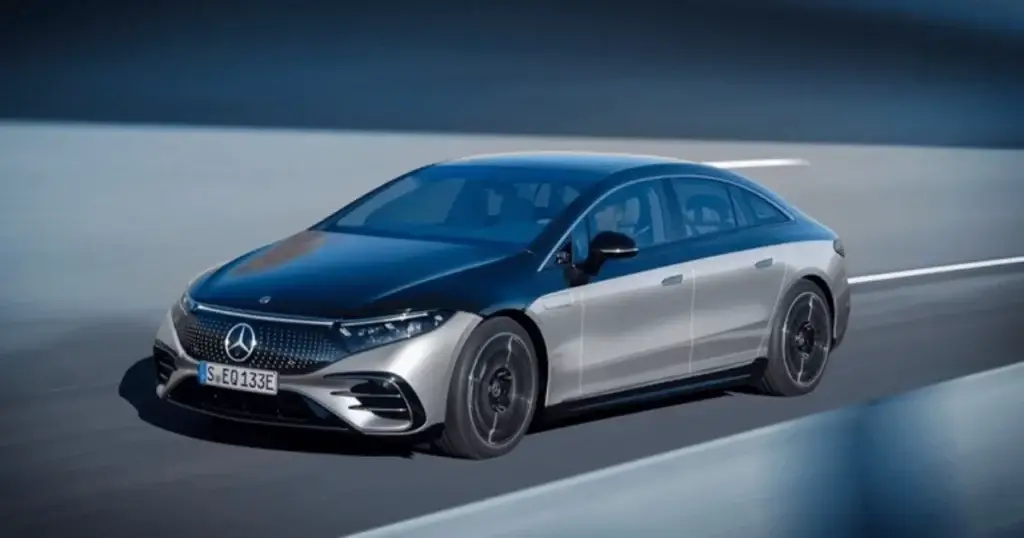
The year 2025 marks a decisive turning point in the electric car industry, with the range of vehicles on offer more diverse and powerful than ever. This comprehensive comparison of the electric cars available in 2025 highlights the most outstanding models, ranked according to three key criteria: affordability, record range and best value for money.
Our in-depth analysis covers a wide range of vehicles, from compact city cars to luxury saloons and versatile SUVs. Whether you're an urban driver looking for an economical solution or a long-distance enthusiast demanding maximum range, this guide will help you identify the electric model that best suits your needs and budget.
The most affordable electric cars
Dacia Spring Electric 65 This city car remains the undisputed champion of the low-cost segment. With a range of between 220 and 305 km and a starting price of €18,400, it offers an economical solution for urban mobility.
- Renault 5 E-Tech : Blending nostalgia and modernity, the new electric R5 is making a comeback. Priced from €25,000, it offers a range of up to 410 km in its "comfort" version, making it an attractive option for those looking for style and efficiency.
- Volkswagen ID.2: This versatile compact car promises a range of up to 450 km. Priced at under €25,000, it combines practicality and performance, accelerating from 0 to 100 km/h in 7 seconds.
- Fiat Grande Panda electric The return of this iconic model in an electric version marks a turning point. Priced at under €25,000, the Grande Panda offers a range of around 250 km, strong styling and practical features such as an integrated charging cable.
These models demonstrate that the accessibility of electric cars has improved significantly, now offering a variety of options for different needs and budgets, while maintaining competitive performance and range.
Cars with the best range
In 2025, the electric vehicle market will continue to grow, with models offering ever more impressive ranges. Here's a look at the best-performing electric cars in terms of range:
Mercedes EQS 450+ a premium saloon with 814 km
Mercedes-Benz confirms its position in the premium segment with the EQS 450+. Thanks to recent updates, this model now achieves an impressive range of up to 822 kilometres on the WLTP cycle. This improvement represents a gain of more than 11% over the previous version, demonstrating Mercedes' commitment to the ongoing optimisation of its electric vehicles.
Tesla Model S Long Range: still at the top with 652 km
Although outstripped by its new rivals, the Tesla Model S Long Range remains a benchmark, with a range of 652 km.. Tesla continues to optimise its vehicles, maintaining its position as one of the market leaders in long-range electric cars.
Hyundai Ioniq 6: efficiency and design aerodynamics
The Hyundai Ioniq 6 stands out for its innovative approach, combining exceptional aerodynamic design with remarkable fuel efficiency. With a coefficient of drag of just 0.21 and an average fuel consumption of 14.3 kWh/100 km over a combined cycle, it achieves a range of up to 614 km depending on the WLTP standard. This model is a perfect illustration of how aerodynamic optimisation can help maximise the range of an electric vehicle.
These vehicles represent the vanguard of electric vehicle technology in 2025, offering ranges that now rival those of traditional combustion-powered vehicles. The rapid development of batteries and energy efficiency promises even greater progress in the years ahead.
Compare the best electric saloon cars :
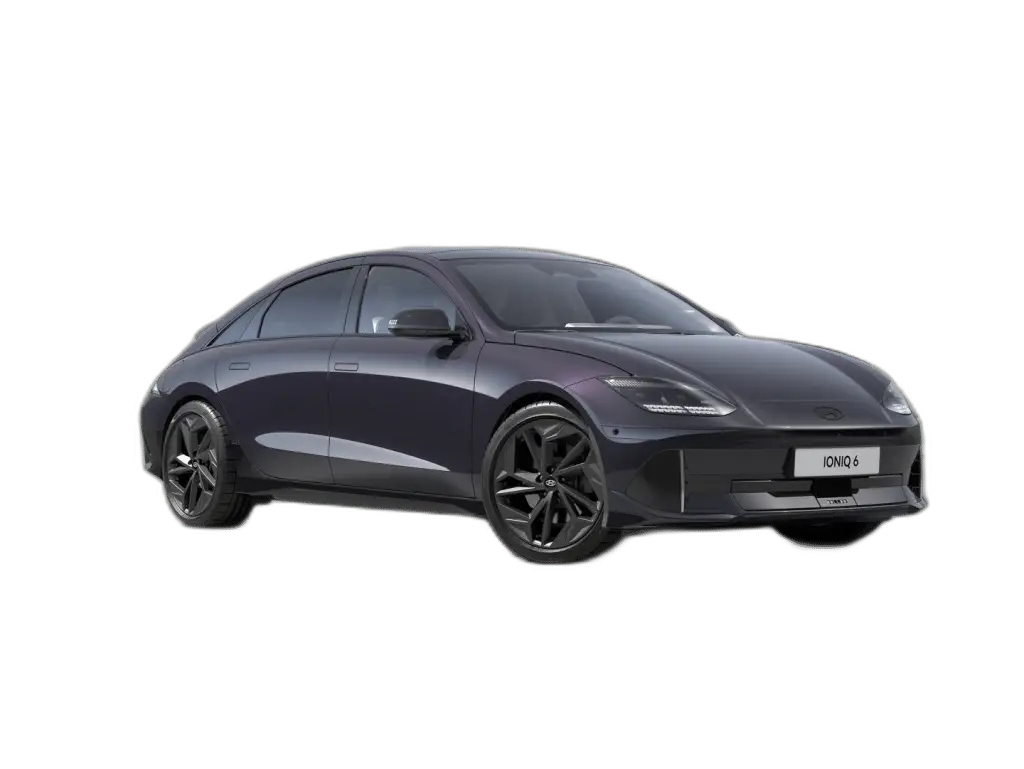
VS

Compare the Hyundai Ioniq 6 vs BMW I4in our electric car comparison tool
The best value electric cars
Tesla Model Y: a versatile SUV
La Tesla Model Y The 2025 stands out as one of the best value-for-money choices for electric SUV enthusiasts. With a range of 568 km according to the WLTP cycle, this model offers a comfortable, high-performance drive thanks to its Dual Motor all-wheel drive and 462 hp. Its spacious interior can accommodate up to five adults and is equipped with advanced technology, including a central 15.4-inch touchscreen. What's more, its fast-charging capability adds up to 266 km in just 15 minutes, ideal for long journeys. Priced from €53,990, the Model Y combines range, technology and versatility, making it a wise investment in the electric SUV segment.
MG4: an affordable, high-performance alternative
Launched as an economical, high-performance option, the MG4 is seductive thanks to its competitive price and technical features tailored to everyday needs. This compact model offers a range of up to 450 km on the WLTP cycle, thanks to its 64 kWh battery. Its modern design and technological features, such as lane-keeping assist and smartphone connectivity, add to its appeal. With prices starting at around €30,000, the MG4 is a solid choice for drivers looking to combine affordable pricing with reliable performance.
Peugeot e-208: compact and versatile for the city
La Peugeot e-208 is an electric city car designed for urban and suburban travel. With a maximum range of 433 km thanks to its 50 kWh battery, it has plenty of range for daily journeys and occasional getaways. Measuring 4.06 metres in length, it combines manoeuvrability in town with interior comfort for its passengers. Its attractive price, starting at €22,650, combined with its rapid recharging capacity of up to 100 kW, enabling it to go from 20 % to 80 % charge in around 30 minutes, makes it an ideal option for those looking for a practical, well-equipped and affordable electric car.
Compare the best electric SUVs :
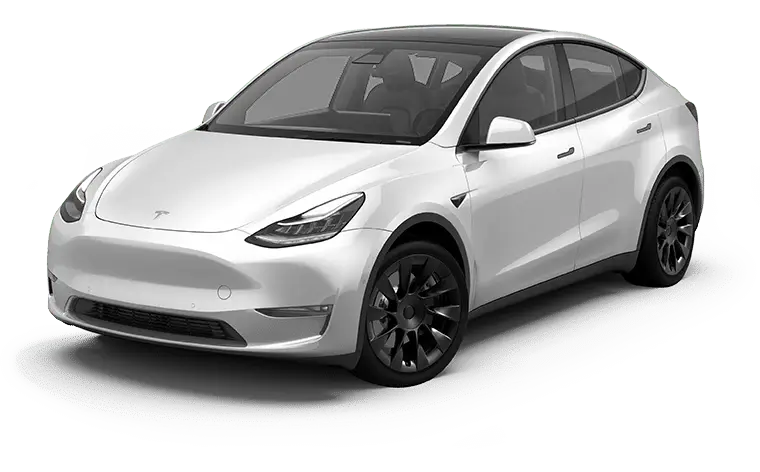
VS
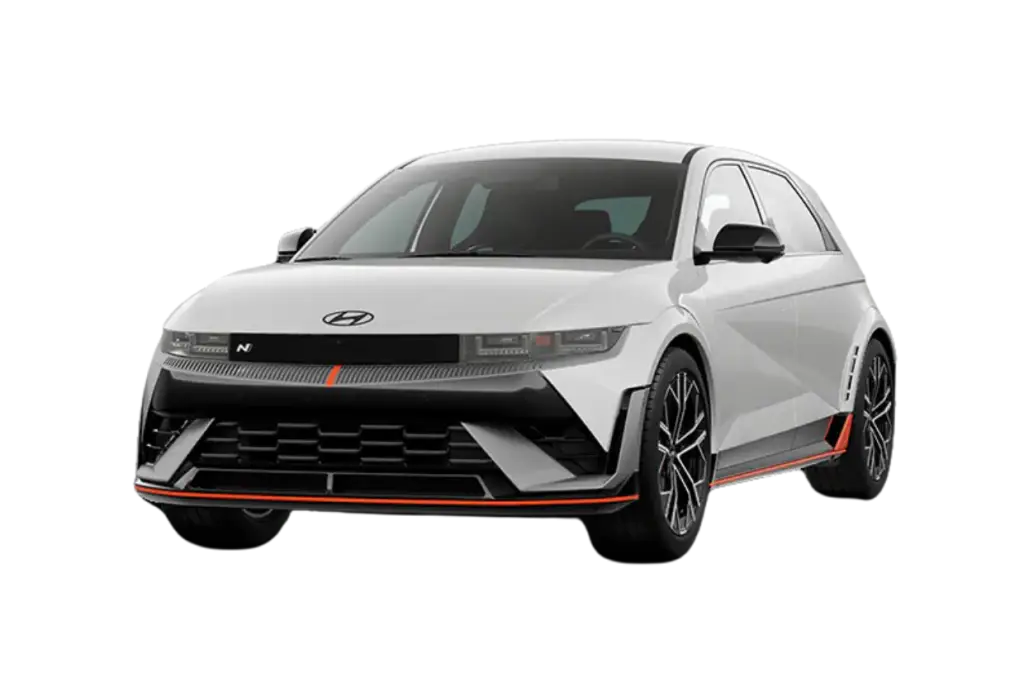
Compare the Tesla Model Y vs Hyundai Ioniq 5 in our electric car comparison tool
Compare the best electric compact cars :
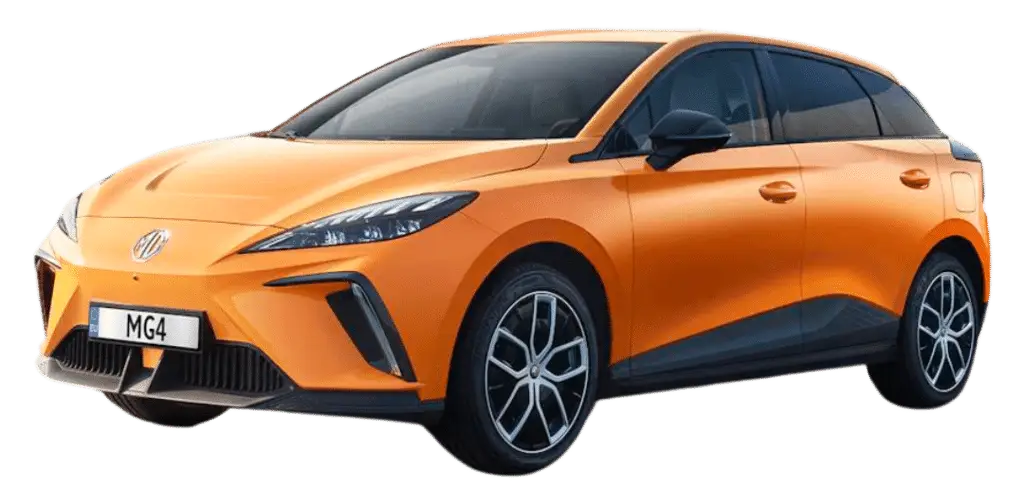
VS
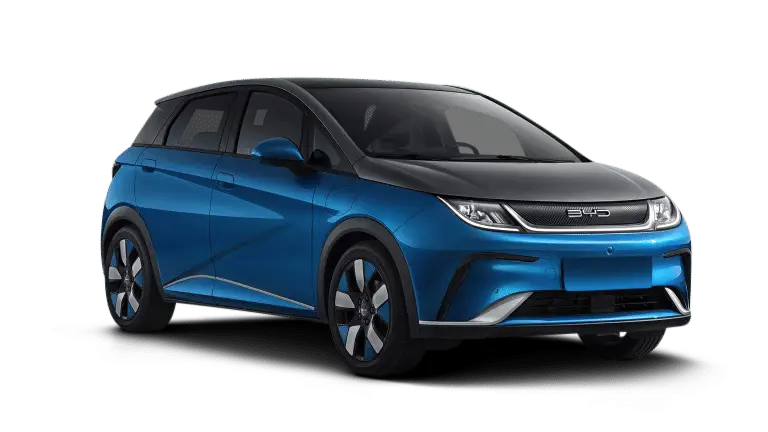
Compare the MG MG4 Electric Standard vs BYD Dolphin 60 kWhin our electric car comparison tool
For individuals and businesses
Comparison of electric and hybrid cars
The automotive market is undergoing a veritable revolution with the rise of electric and hybrid vehicles. By 2025, these technologies will offer increasingly attractive alternatives to traditional combustion engines. In this section, we'll compare electric and hybrid cars in detail, looking at their fundamental differences, their respective advantages and the points to consider before making your choice. Whether you're looking for an environmentally-friendly solution for your daily commute or a high-performance vehicle for long journeys, this analysis will help you understand the specifics of each technology and identify the one that best suits your needs.
Differences between hybrid and electric vehicles
Operation and environmental impact :
Hybrid and electric cars differ significantly in terms of operation and environmental impact, which may influence companies' investment decisions:
- Hybrids: combine a combustion engine and an electric motor, reducing CO2 emissions by 20 to 40% compared with conventional petrol vehicles. However, their efficiency is highly dependent on use and can vary considerably between advertised and actual performance.
- Electric: Run solely on electricity, emitting no direct emissions. Their overall environmental impact depends on the source of electricity used for recharging.
For companies, the choice between hybrid and electric must take into account thecarbon footprint and social and environmental responsibility (SER) objectives.
Autonomy and running costs :
Autonomy and cost of use are crucial factors for companies when calculating their return on investment:
- Hybrids: offer greater combined range (electric + internal combustion). For example, the Toyota RAV4 Plug-in offers up to 75 km of electric range. Running costs vary according to driving style, with fuel consumption of up to 7.6 to 8.4 L/100 km for company vehicles in real-life conditions.
- Electric: Range is constantly increasing, with models like the Lucid Air Dream Edition R reaching 837 km. Recharging costs are generally lower than fuel costs, with a full recharge rarely costing more than €10.
For companies, the analysis must include :
- The nature of journeys (urban, long-distance)
- Access to recharging infrastructure
- Long-term maintenance costs
In conclusion, the choice between hybrid and electric will depend on the specific needs of the company, its fleet strategy and its environmental objectives. A thorough analysis of the total cost of ownership (TCO) over the vehicle's lifetime is essential to make an informed decision and maximise the return on investment.
Advantages and disadvantages of hybrid cars
Hybrid cars represent an attractive intermediate solution for companies looking to reduce their carbon footprint while retaining the flexibility of combustion engines. They offer a number of significant advantages, including reduced fuel consumption and CO2 emissions, which can translate into substantial savings for corporate fleets. For example, the Toyota Prius, renowned for its reliability, has reduced fuel consumption, while the Ford Kuga PHEV offers an electric range of 56 km, ideal for emission-free urban travel.
However, companies need to be aware of the limitations of this technology. Range in all-electric mode remains relatively low compared with electric 100% vehicles, which can be problematic for long journeys. In addition, the higher initial purchase cost and the complexity of maintenance can have an impact on the return on investment in the short term.
For companies, the main points to consider are :
- Reduced operating costs: Savings on fuel and maintenance over the long term.
- Environmental compliance: Access to low-emission zones and reduction of carbon footprint.
- Flexibility of use: Ideal for mixed urban/extra-urban journeys.
- Higher initial costs: in-depth financial analysis required to justify the investment.
- Complexity of fleet management: training staff in the specific maintenance of hybrid systems.
In conclusion, hybrid cars offer an interesting compromise for companies looking to green their fleet without sacrificing versatility. However, a detailed analysis of the company's specific needs, usage patterns and sustainability objectives is essential to determine whether this technology represents the best solution for maximising return on investment and meeting environmental objectives.
Advantages and disadvantages of 100% electric cars
Electric 100% vehicles offer significant advantages for companies concerned about their environmental impact and brand image. Their main advantage lies in the total absence of CO₂ emissions during use, which considerably reduces the carbon footprint of the company fleet. What's more, running costs are generally lower than those of combustion vehicles, thanks in particular to reduced recharging and maintenance costs.
However, companies need to take into account a number of specific challenges:
- Limited range: Although constantly improving, the range of electric vehicles is still less than that of internal combustion models, which can have an impact on the planning of business trips.
- Recharging time: Recharging can take several hours, requiring appropriate logistical arrangements for company fleets.
- Initial acquisition cost: The purchase price of electric vehicles is generally higher, although tax incentives can reduce this difference.
To maximise return on investment, companies can :
- Take advantage of government incentives such as the ecological bonus and the conversion premium.
- Install on-site charging stations to facilitate fleet management.
- Training drivers in eco-driving to maximise vehicle autonomy.
In conclusion, 100% electric cars offer long-term environmental and economic benefits for businesses, but require strategic planning to overcome the challenges of range and recharging.
Tests and trials of the leading models of 2025
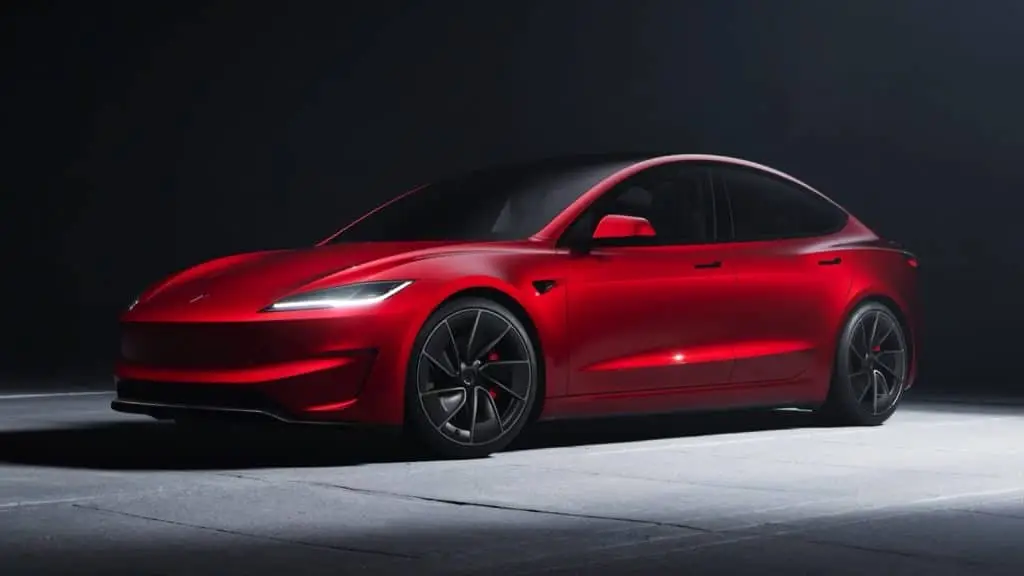
Tests and trials of electric cars in 2025 have revealed significant advances in terms of range, performance and comfort. Here is an overview of the results obtained by the most promising models:
Results of tests on real autonomy
Tests in real-life conditions have shown that some vehicles exceed their WLTP estimates:
- La Tesla Model 3 Long Range confirmed its reputation with a measured range of 701 km.
- La BMW i4 eDrive40 and the Hyundai Ioniq 6 reached 690 km and 683 km respectively, remarkable performances for their segment.
Compare the best electric saloon cars :

VS

Compare the Tesla Model 3 Long Range vs BMW i4 eDrive40in our electric car comparison tool
Driving comfort and performance
The models tested showed significant improvements in terms of comfort and performance:
- The Mercedes-Benz EQS stands out for its exceptional comfort and its fully digital dashboard, offering a top-of-the-range driving experience.
- The Tesla Model S Plaid combines luxury and performance, with lightning acceleration and an advanced semi-autonomous driving system.
Strengths and areas for improvement
Highlights:
- The range is constantly increasing, exceeding 700 km for certain premium models.
- Increasingly sophisticated infotainment and assisted driving systems.
- Reduced recharging times thanks to improved fast-charging capabilities.
Areas for improvement :
- Price remains a barrier for some top-of-the-range models, limiting their accessibility.
- The range of electric city cars, while improving, remains limited for long journeys.
- The availability of fast-charging stations still needs to improve to facilitate long-distance travel.
These tests underline the rapid development of the electric vehicle market, with significant advances in range and on-board technology. Manufacturers are continuing to innovate to meet consumers' growing expectations in terms of performance, comfort and energy efficiency.
Tips for choosing the right electric car in 2025
Choosing the ideal electric car in 2025 requires careful thought about a number of crucial aspects. The rapid evolution of the electric vehicle market now offers a wide range of options, making the decision more complex but also more customisable. To make the right choice, it's essential to consider not only range and price, but also compatibility with the car's environment.recharging infrastructureIn this section, we'll explore the key factors to consider when selecting the right electric car for your needs and budget. In this section, we'll explore the key factors to consider when selecting the electric car that will best suit your needs and budget in 2025.
Assessing your autonomy needs
Range is a crucial criterion when choosing an electric car in 2025. To properly assess your needs, consider the following points:
- Daily use: Calculate the average distance travelled each day. Most drivers don't exceed 50 km per day, which is more than covered by most current electric models.
- Long-distance journeys: If you regularly make long-distance journeys, opt for models with a range of over 400 km, like the Tesla Model 3 with its 560 km range.
- Charging infrastructure: Assess the availability of charging points on your usual routes. A dense network can compensate for a shorter range.
- Actual fuel consumption: Bear in mind that advertised range may vary. In 2025, average consumption will be between 12 and 20 kWh/100 km, depending on the model and driving conditions.
- Safety margin: Allow a margin of at least 20% in relation to your estimated needs to compensate for unforeseen events and the natural degradation of the battery over time.
By accurately assessing your range requirements, you can choose an electric vehicle that suits your lifestyle, optimising your investment and your electric driving experience.
Check compatibility with charging stations
Compatibility with charging points is a crucial aspect when choosing an electric car in 2025. Although most vehicles are now compatible with a wide range of charging points, there are a number of things to bear in mind:
- Type of connector: The majority of standard charging points (3.7 to 22 kW) available to the public in France are equipped with T2-type sockets, ensuring theoretical compatibility with all electric vehicles.
- Charging power: Check the maximum charging capacity accepted by your vehicle, which varies according to make and model. Some cars can take full advantage of fast charging points, while others are limited to lower powers.
- Charging network: Examine the density of charging points in your area and on your frequent routes. Some manufacturers, such as Tesla, offer exclusive charging networks with additional benefits.
- Home charging options: Consider installing a Wallbox in your home, offering an efficient and practical solution with a power output of up to 22 kW.
By 2025, with over 140,000 charging points in France, the infrastructure has developed considerably. However, it's still vital to ensure that your choice of electric vehicle is in line with your daily and long-distance recharging needs.
Compare the total cost of ownership (purchase, maintenance, recharging)
The total cost of ownership (or TCO, for Total Cost of Ownership) is an essential criterion for choosing an electric car in 2025. It makes it possible to assess the real costs involved in acquiring and using a vehicle over several years. Here are the main points to bear in mind when comparing models:
- Initial purchase price: Electric cars often have a higher purchase price than their internal combustion counterparts. However, this price can be reduced thanks to financial aid such as the ecological bonus or the conversion premium, which can amount to several thousand euros depending on the model and the region.
- Cost of recharging: Recharging an electric car is generally less expensive than refuelling a car. thermal vehicle. In 2025, with average domestic recharging rates of around €0.14/kWh, driving 100 km will cost around €2 to €3, compared with €8 to €10 for a petrol or diesel vehicle.
- Reduced maintenance: Electric vehicles require less maintenance than combustion-powered cars. The absence of a combustion engine eliminates the costs associated with oil changes and parts such as belts and exhausts. On the other hand, you need to think ahead about replacing the battery after several years, even though it is often guaranteed for up to eight years.
- Residual value: The resale of an electric vehicle can be advantageous thanks to growing demand and policies favouring zero-emission vehicles. This reduces the overall depreciation of the vehicle.
- Taxation and incentives: In France, electric cars benefit from tax incentives such as exemption from vehicle registration tax in certain regions and reductions in company vehicle tax (TVS) for businesses.
In short, although the initial cost may seem high, the TCO of electric cars tends to be competitive thanks to savings on recharging, maintenance and tax incentives. Comparing these elements is therefore crucial to making an informed choice based on your needs and budget.
Summary table
| Category | Sub-category | Key points |
|---|---|---|
| Market 2025 | Growth | Market share: 20-24% (France). Factors: Price, CO2 standards, terminals, technology. |
| Developments | Increased range (>500 km). Fast charging (<20 min for 80%). More affordable models. Diversified range. | |
| Selection criteria | Main | Autonomy, Price, Cost of use, Recharging. |
| Autonomy | Varies according to type (city car, saloon, SUV). Factors influencing actual range. | |
| Awards and grants | Range: Entry, Medium, High. Subsidies: Ecological bonus (up to €4,000). | |
| Cost of use | Consumption: 15-20 kWh/100 km. Recharging: Home (cheaper) vs. Public. | |
| Refill | Types : AC, DC, Wallbox. Time: Varies according to terminal and vehicle. | |
| Model comparison | Affordable | Dacia Spring, Renault 5 E-Tech, VW ID.2, Fiat Grande Panda. |
| Better Autonomy | Lucid Air, Mercedes EQS, Tesla Model S, Hyundai Ioniq 6. | |
| Best value for money | Tesla Model Y, MG4, Peugeot e-208. | |
| Electric vs. Hybrid | Differences | Hybrids: internal combustion engine + electric. Electric: 100% electric. Different range, different running costs. |
| Hybrids | Advantages: CO2 reduction, flexibility. Disadvantages: Limited electric range, cost. | |
| Electric | Advantages: Zero emissions, low running costs. Disadvantages: Autonomy, recharging. | |
| Buying advice | Key points | Assess the range required. Check terminal compatibility. Compare the total cost of ownership (TCO). |
Conclusion
In conclusion, the market for electric cars in 2025 is booming, with a wide range of models to suit different needs and budgets. The key criteria for choice will continue to be range, price and running costs, with significant progress being made in terms of range and an increasingly affordable range.
It is crucial for consumers to assess their specific needs, compare models taking into account the total cost of ownership, and check compatibility with charging infrastructures to make an informed choice and reap the full benefits of electromobility.
Do you want to go electric? Beev can help you make the transition to greener, more sustainable mobility. Whether you're an individual looking for a installation of home charging points or a professional requiring installation of recharging points for professionalswe are simplifying theinstallation of a recharging pointby offering you tailor-made solutions to meet your specific needs. So go ahead, install a charging point and set yourself apart from the competition.
You would like toto electric?
Beev offers multi-brand 100% electric vehicles at the best prices, as well as recharging solutions.
